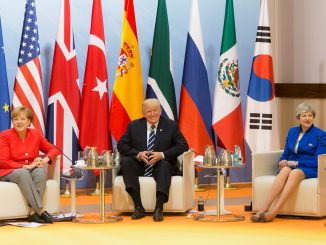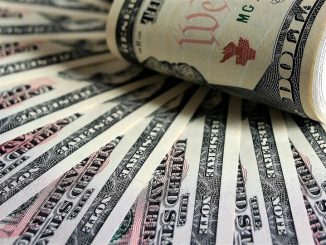
The political and economic paralysis continues in the UK as the country awaits a new prime minister and the results of Brexit.
British Prime Minister Teresa May resigned as Conservative leader on Friday and will serve as interim prime minister until the leadership contest is completed.
The deadline for nominations for Conservative leadership is Monday, and there are currently six candidates in the race, including prominent candidates Boris Johnson and Jeremy Hunt (former and current secretary of state), both of whom met with US President Donald Trump during his visit to the United Kingdom.
Most of them are keen to promote their credentials in support of Brexit as the broader Conservative Party and pro-Brexit members call on the government to make progress in leaving the EU by the new deadline on Oct. 31.
Boris Johnson, who is expected to become a leader of the Conservative Party, said he would try to renegotiate May’s Brexit deal with Brussels.
After three years of Brexit negotiations with the EU since Britain’s EU exit referendum in June 2016, the prospect of reopening the talks under Boris Johnson will lead to a long sigh of stress across the EU.
Officials there have already said the deal will not change, making the possibility of a “no deal” for the union in October, although most lawmakers in the British parliament have voted against such a scenario. Britain’s Chancellor of the Exchequer Philip Hammond said on Saturday the possibility of a no-deal was “very small.”
Teneo Intelligence’s research team on Monday warned that the “expectations about renegotiations and no-deal will be raised by most contenders” and warned of further volatility in the meantime.
“But once the new PM has taken over, the reality of political polarization will once more constrain their ability to make good on their promises. The result will be increased volatility in the run-up to the 31 October extension deadline,” said the research team.
Meanwhile, the UK economy seems shaky as uncertainties about the country’s future relationship with the EU, its largest trading partner, continue to dampen corporate and investor confidence.
The UK economy contracted a more-than-expected 0.4 percent in April after falling 0.1 percent in March, the National Bureau of Statistics (NBS) said on Monday. In terms of quarterly performance, growth slowed to 0.3% in the three months to April after a 0.5% expansion in the first quarter. The pound dropped almost 0.6% against the dollar after the release of data to 1.2651.
The monthly decline in gross domestic product is mainly due to the dramatic drop in car production, which fell 24% in April from the previous month – the biggest drop since records began in 1995. Analysts said the economic boost provided by stockpiling manufacturers in the run-up to Brexit’s original date of March 29 has now been reversed.
There was also a widespread weakness in the manufacturing sector in April, as the consolidation of the early completion of orders before UK’s original departure date from the EU faded.
If we look at the UK economy, it seems that we have a large inventory stocking before the date of Britain’s original Brexit date and now see the flip side of this matter.
The UK is now facing a state of political and economic uncertainty and we believe this will be the case for at least the next two quarters.
The longer the debate over Brexit continues, the greater the longer-term implications. The country has been struggling with capital investment for a while and will continue to struggle, because who wants to invest in this economy, which faces so much uncertainty at this time?




Be the first to comment